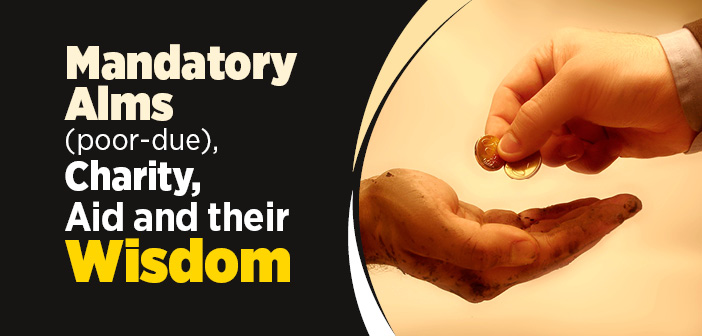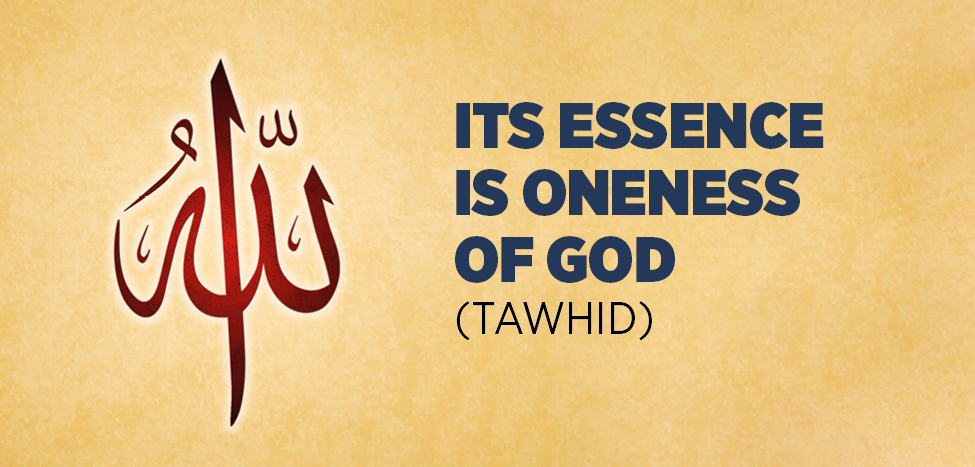What does means charity in islam? What is mandatory alms in islam?
Mandatory Alms in Islam (zakat) are given by the wealthy whose wealth is above a certain threshold. The given amount is 2.5% of the wealth and it can be given to the poor; the needy; the officers charged with collecting zakat; those whose hearts have been recently reconciled to Truth, i.e., converts; those in bondage who are trying to buy out their freedom; those in debt; those who fight in the way of Allah; and wayfarers. (Tawba, 9, 60).
Zakat protects the social life and bonds individuals to each other in brotherhood and love by preventing the wealthy from being duped by their wealth and committing excess, and by deflecting from the needy negative tendencies such as grudge and jealousy. It minimizes the disparity between poor and wealthy. By almost eradicating poverty, it prevents many unpleasant incidents that may happen because of it.
The Caliph Omar bin Abulaziz once sent his Zakat officer to African countries. Unable to redistribute the goods, the officer brought them back. This is because he could not find anyone to receive the alms. In turn, the caliph acquired many slaves with this money and freed them.[1]
Zakat is a bridge between people of different levels, which unifies the community. For this reason, the Messenger of Allah (blessings and peace be upon him) said: “Zakat is the bridge of Islam.”[2] According to another scholar’s, Qatada, another version states, “Zakat is a bridge between Paradise and Hell. Whoever pays the Zakat crosses the bridge and reaches Paradise.”[3]
The benefit of Zakat, which pleases those who receive it, is greater for those who give it. Indeed, Zakat, which means “cleanliness, purity, increase, abundance,” cleanses the person from certain spiritual illnesses and evils, and ensures that property is purified and bountiful.[4] So, the purification of the heart and soul, and this reform of the carnal self is one of the wisdoms that underlie sending the prophets. The Zakat worship also disciplines a human being’s feelings of possession and selfishness.
Zakat is an expression of the gratefulness that the wealthy need to perform in response to the divine bounties that they garnered. God Almighty states that the bounties will increase if thanks are given to Allah and that in case of ungratefulness the torment will be severe.[5]
When Zakat is not given all these benefits are turned upside down and much damage will take place against the individual and society. Our Master the Messenger of Allah (blessings and peace be upon him) informed us that when Zakat starts being seen as a heavy burden in a society and when it’s completely ignored in time, certain calamities will be inflicted upon people.[6] Once he said as follows:
“A nation who abstains giving their Zakat (alms) is definitely left devoid of rain and if they did not have animals, rain would even completely cease.” (Ibn Majah, Fiten, 22; Hakim, IV, 583/8623)
[1] See. Bûtî, Fıkhu’s-sîre, Beirut 1980, p. 434.
[2] Beyhakî, Şuab, III, 20, 195; Heysemî, III, 62.
[3] Abdurrazzâk, Musannef, IV, 108.
[4] At-Tawba (Repentance), 9: 103; Saba (Sheba), 34: 39.
[5] Ibrâhîm, 14: 7.
[6] Tirmizi, Fiten, 38/2210, 2211.
Source: Dr. Murat Kaya,The Final Divine Religion: ISLAM





